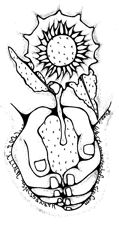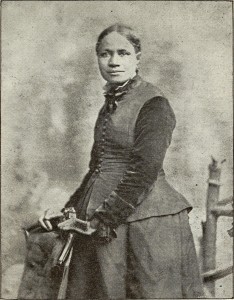The Aunties Have Always Known
March 1, 2022When I was a teenager, I loved Ralph Waldo Emerson, particularly his essay on self-reliance. Read more →
Interdependence
March 1, 2022What does it mean to live interdependently?
DeShaun
CLF Member, incarcerated in TX
 To be interdependent is to depend on one another. Read more →
To be interdependent is to depend on one another. Read more →
Forgive Us Our Trespasses
March 1, 2022In April of 2019, I led a youth and adult delegation from the local congregation I serve on a service-learning trip to Pine Ridge, South Dakota. Read more →
A Message To The Community: A Letter From Prison
March 1, 2022Reggie
CLF Member, incarcerated in PA
 I offer my condolences to the families who have lost loved ones
I offer my condolences to the families who have lost loved ones
And became victims to the violence Read more →
Quest March 2022
March 1, 2022March 2022
All are caught in an inescapable
network of mutuality, tied in a single
garment of destiny. Whatever affects one directly, affects
all indirectly.
—Rev. Dr. Martin Luther King, Jr.
Articles
The Aunties Have Always Known
Jessica Star RockersWhen I was a teenager, I loved Ralph Waldo Emerson, particularly his essay on self-reliance. Read more »
Forgive Us Our Trespasses
Rev. Dr. Michael TinoIn April of 2019, I led a youth and adult delegation from the local congregation I serve on a service-learning trip to Pine Ridge, South Dakota. Read more »
A Message To The Community: A Letter From Prison
ReggieI offer my condolences to the families who have lost loved ones… And became victims to the violence… Read more »
The Blessed Gift of Joy
July 6, 2016Siri Allison is a storyteller with Story Circle at Proctors, the resident storytelling company at this performing arts center in Schenectady, NY. This story is from the Kanglanek people, who live near the source of the Colville River, a major river on the Arctic Coast of Alaska. (Story begins at 1:20 after some introduction.)
Moving Toward Freedom
March 31, 2016Frances Ellen Watkins Harper was born a free Black woman in Baltimore, Maryland in 1825. She was raised in the household of her uncle, an educator and African Methodist Episcopal (AME) minister. He was also an abolitionist—a person who objected to the enslavement of blacks. Harper became an educator and abolitionist as well. She also became a writer, publishing her first book of poetry at twenty and later in life publishing the first short story by an African American woman. Her writing often urged Blacks, women, and people in oppressed groups to take a firm stand for equality and freedom.
In 1850, the Fugitive Slave Act was passed. It became dangerous to be a free Black in Maryland because slave owners could claim Black people were runaway slaves and force them into slavery. So, Harper moved farther north to Ohio and then to Philadelphia. She taught, ran part of the Underground Railroad helping slaves escape to freedom, and lectured around the country.
In 1863, abolitionists celebrated success with the passage of the Emancipation Proclamation, which freed the slaves. But there was a long road ahead to full equality, and Harper spent the rest of her life working for women as well as African Americans to have access to full freedom and justice.
To read some of Harper’s poems click here.
Jumping Mouse
November 2, 2015Adapted from a Native American legend, and told by Rev. Dr. Lynn Ungar.
On Setting Out and Coming Home
November 1, 2015Podcast: Download (Duration: 11:02 — 25.3MB)
Subscribe: More
Matsuo Bashō, the late 17th century Japanese poet, speaks of a strong desire to wander, as if it’s the essence of who he is. In the opening lines of his travel sketch, The Narrow Road to the Deep North, he says: “The gods seemed to have possessed my soul and turned it inside out, and roadside images seemed to invite me from every corner, so that it was impossible for me to stay idle at home.” Read more →
About
Quest for Meaning is a program of the Church of the Larger Fellowship (CLF).
As a Unitarian Universalist congregation with no geographical boundary, the CLF creates global spiritual community, rooted in profound love, which cultivates wonder, imagination, and the courage to act.
Contact
Church of the Larger Fellowship Unitarian Universalist (CLFUU)
24 Farnsworth Street
Boston MA 02210



Here is a blessing to offer anyone who is heading out on a journey–even if that journey is just as far as school.
May you go out in peace and may you come back in joy. On the road in between, may you find what fills your heart, feeds your mind and inspires your imagination.
Artist: Alice Popkorn